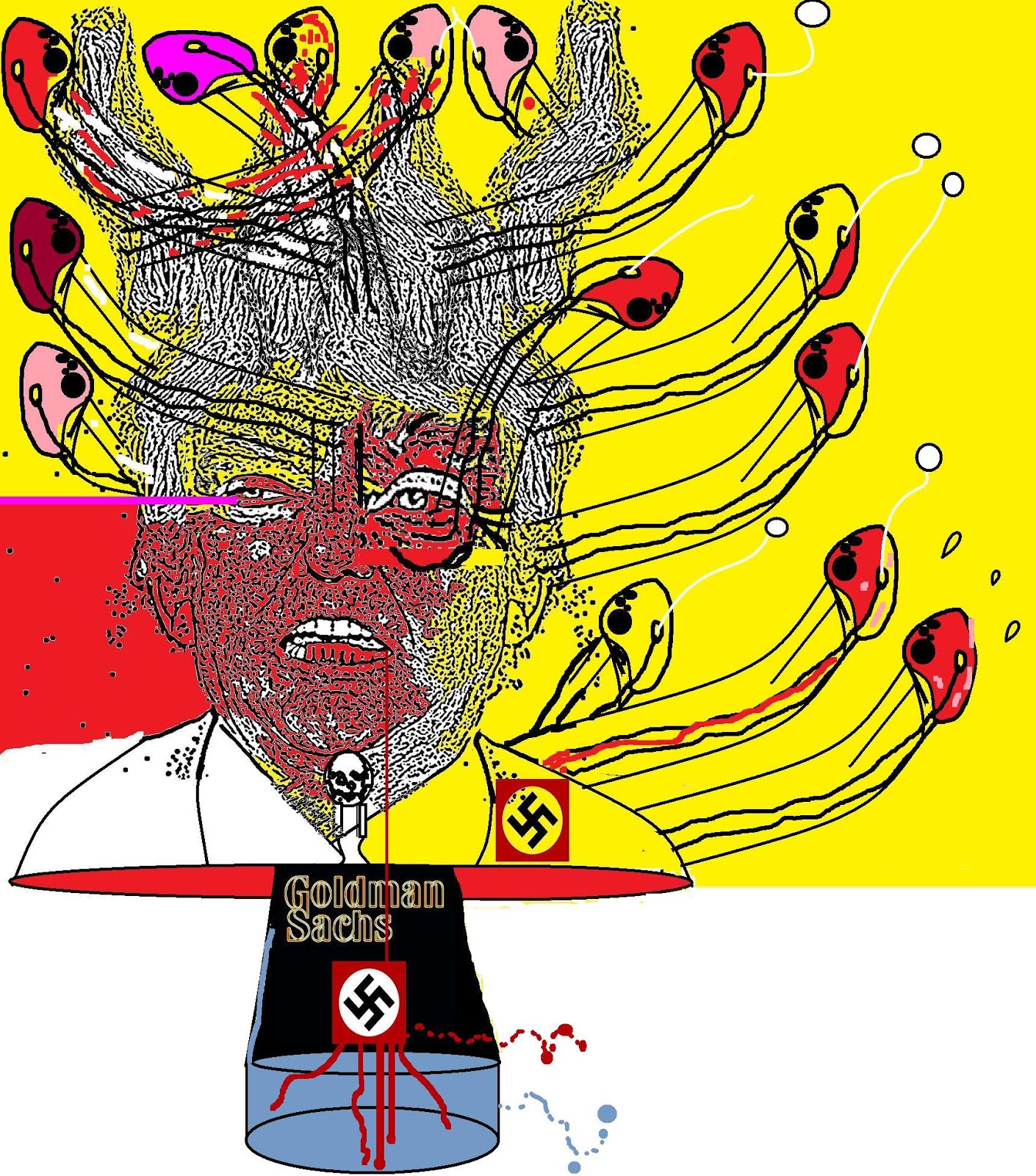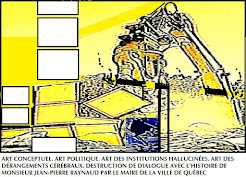 |
DES COMBATTANTS D'AL-SHABAB
DES DIZAINES DE MORTS DANS UNE ATTAQUE D’AL-SHABAB
EN SOMALIE
vendredi 26 juin 2015
|
vendredi 26 juin 2015
6615. ART CONTEMPORAIN. DES DIZAINES DE MORTS DANS UNE ATTAQUE D’AL-SHABAB EN SOMALIE. LES ISLAMISTES DU GROUPE AL-SHABAB ONT ATTAQUÉ VENDREDI À L'AUBE UNE BASE DE LA FORCE DE L'UNION AFRICAINE (UA) ET ONT TUÉ DE NOMBREUX SOLDATS. UNE VOITURE CHARGÉE D'EXPLOSIFS A FONCÉ SUR LA BASE ET D'INTENSES COUPS DE FEU ONT ÉTÉ ÉCHANGÉS, SELON UN RESPONSABLE DE LA RÉGION. LES FORCES DE L'UA ONT OUVERT LE FEU SUR LE VÉHICULE QUI A RÉUSSI À SE FRAYER UN CHEMIN. UN PORTE-PAROLE DU GROUPE AFFILIÉ À AL-QAÏDA A DÉCLARÉ QUE PLUSIEURS ACTIVISTES AVAIENT PÉNÉTRÉ DANS LA BASE ET QUE DE VIOLENTS AFFRONTEMENTS SE POURSUIVAIENT À L'INTÉRIEUR DU SITE. LE RESPONSABLE DE LA RÉGION A INDIQUÉ QU'IL Y AVAIT AU MOINS 25 SOLDATS TUÉS. D'AUTRES TÉMOINS PARLENT DU DOUBLE DE VICTIMES. AUCUN BILAN OFFICIEL N'A ENCORE ÉTÉ FOURNI.
SOMALIE
GOUVERNEMENT DU CANADA
MINISTÈRE DU TOURISME
ÉVITER TOUT VOYAGE
Affaires étrangères, Commerce et Développement Canada
recommande d’éviter tout voyage en Somalie.
Si vous êtes présentement en
Somalie malgré cet avertissement, vous devriez quitter immédiatement.
La
situation en matière de sécurité en Somalie est extrêmement instable, dangereuse et imprévisible et la
menace posée par le terrorisme intérieur est élevée, surtout au centre-sud du
pays et dans la capitale, Mogadiscio.
Si vous vous trouvez actuellement en
Somalie malgré le présent avertissement, vous devriez quitter immédiatement.
Le
gouvernement du Canada n'a pas de représentation officielle en Somalie et n’est
pas en mesure d’apporter une aide consulaire aux citoyens canadiens en
détresse.
Si vous vous trouvez aux prises avec une situation d’urgence en
Somalie, vous devrez vous rendre à une ambassade ou consulat du Canada dans un
autre pays, ou vous débrouiller par vos propres moyens.
Malgré la mise en place d’un nouveau parlement et l’élection d’un
nouveau président en août et septembre 2012, le gouvernement (qui bénéficie de
l’appui de troupes internationales) et des groupes terroristes comme Al-Shabaab
se disputent le contrôle de ces régions.
La situation actuelle demeure une menace très grave pour les
voyageurs.
Des manifestations violentes, des attentats suicides, des attaques
et des opérations militaires se produisent régulièrement.
Vous devez également
savoir que le ressentiment contre les Occidentaux peut parfois être marqué.
Les
voyageurs étrangers, y compris les journalistes, les défenseurs des droits de
la personne et les travailleurs humanitaires courent un très grand risque
d’être victimes d’un enlèvement, d’un assassinat ou d’une arrestation sans
avertissement ou sans raison apparente.
Le respect de la primauté du droit est
pratiquement inexistant
et il n’y a aucune garantie de recevoir un procès
équitable ni de voir les tribunaux locaux respecter l'immunité diplomatique ou
l’immunité conférée par l’ONU.
Si vous décidez de voyager en Somalie malgré cet
avertissement, vous risquez d’avoir de la difficulté à quitter le pays.
SOMALILAND ET PUNTLAND
Le Somaliland (une république autoproclamée revendiquant
l’indépendance) et le Puntland (une région administrative au nord-est de la
Somalie) ont connu des périodes de stabilité relative par rapport aux régions
du centre et du sud de la Somalie.
Toutefois, de violentes attaques y ont
également été perpétrées contre des cibles étrangères.
Dans ses conseils aux
voyageurs pour la Somalie, le Royaume Uni continue de mentionner qu’il y a une
menace spécifique envers les Occidentaux au Somaliland.
Les conflits entre les clans donnent souvent lieu à des
combats dans les régions de Sanaag et de Sool au Somaliland, le long de la
frontière avec le Puntland.
Les tensions et la violence dans le sud du pays
pourraient se propager au Somaliland et au Puntland à tout moment.
TERRORISME
Il existe une menace terroriste en Somalie
Des groupes terroristes de la région, y
compris al Qaeda et al-Shabaab continuent de proférer des menaces contre les
intérêts occidentaux.
Des attentats terroristes à l’arme lourde contre des
cibles gouvernementales surviennent fréquemment, notamment à Mogadiscio.
Les transports publics, y
compris l’aéroport international, les endroits publics comme les hôtels et les
restaurants ainsi que les institutions internationales ont déjà été le théâtre
d’attentats, de sorte que les victimes civiles ne sont pas rares.
2 explosions quasi simultanées se sont produites près du Central Hotel à
Mogadiscio, le 20 février 2015.
L’hôtel a ensuite été pris d’assaut par des
hommes armés; au moins dix personnes ont été tuées et des dizaines d’autres ont
été blessées lors de cette attaque.
Le 26 juin 2015, des membres d’al Shabaab
ont tué des dizaines de soldats de l’Union Africaine lorsqu’ils ont pris
d’assaut leur base dans le village de Lego.
On ne peut écarter la possibilité
que
d’autres attentats soient perpétrés.
Soyez vigilant dans les endroits
achalandés et surveillez les médias locaux.
ENLÈVEMENTS
Les étrangers courent un très grand risque d’être victimes
d’un enlèvement, partout en Somalie, y compris au Somaliland.
Plusieurs
Occidentaux, y compris des travailleurs humanitaires ont été enlevés ces
dernières années.
CRIMINALITÉ
Dans tout le pays, les milices armées commettent de nombreux
crimes.
Des vols à main armée, des
détournements de voiture et des meurtres sont régulièrement signalés.
TRANSPORT TERRESTRE ET AÉRIEN
L'aéroport international Aden Adde de Mogadiscio est souvent
forcé de suspendre ses activités avec peu ou pas de préavis, en raison des
affrontements.
La frontière terrestre entre le Kenya et la Somalie reste
fermée et les liaisons aériennes entre les deux pays font l’objet de procédures
spéciales de la part du gouvernement kényan.
RENSEIGNEMENTS GÉNÉRAUX EN MATIÈRE DE SÉCURITÉ
Il n'y a pas d’installations touristiques.
L’approvisionnement en électricité et en eau n’est pas assuré.
Le service
téléphonique international et l'accès à Internet sont limités aux grandes
villes, où l’accès n’est pas fiable.
PIRATERIE
On constate une augmentation des actes de piraterie contre
des vaisseaux au large des côtes
somaliennes.
Les navigateurs devraient prendre les précautions qui s’imposent.
Pour de plus amples renseignements, consultez le site Web Live Piracy Report
(en anglais) de l’International Maritime Bureau.
LOIS ET COUTUMES
Toute activité homosexuelle est illégale.
MARIAGES FORCÉS
On signale que des citoyennes canadiennes ont été
contraintes de se marier
sans avoir été consultées
et sans avoir donné leur
consentement.
Les parents et les autres membres de la famille et de la
communauté locale peuvent exercer des pressions sans relâche et avoir recours
au chantage affectif, aux menaces, à l’enlèvement, à la séquestration et à la
violence physique pour forcer les jeunes à se marier.
Bien que les hommes
autant que les femmes puissent être soumis à ces pressions, il s'agit d'une
forme de violence qui touche principalement les femmes et les filles.
Des
victimes ont été incapables de revenir au Canada, la famille ayant confisqué
leur passeport et leur argent.
Pour plus de détails sur les mariages forcés,
consultez notre FAQ Mariage à l’étranger et notre publication intitulée Voyager
au féminin : La sécurité avant tout.
*
CIA
Britain withdrew from British Somaliland in 1960 to allow
its protectorate to join with Italian Somaliland and form the new nation of
Somalia.
In 1969, a coup headed by Mohamed SIAD Barre ushered in an
authoritarian socialist rule characterized by the persecution, jailing, and
torture of political opponents and dissidents.
After the regime's collapse
early in 1991, Somalia descended into turmoil, factional fighting, and anarchy.
In May 1991, northern clans declared an independent Republic of Somaliland that
now includes the administrative regions of Awdal, Woqooyi Galbeed, Togdheer,
Sanaag, and Sool.
Although not recognized by any government, this entity has
maintained a stable existence and continues efforts to establish a
constitutional democracy, including holding municipal, parliamentary, and
presidential elections.
The regions of Bari, Nugaal, and northern Mudug
comprise a neighboring semi-autonomous state of Puntland, which has been
self-governing since 1998 but does not aim at independence; it has also made
strides toward reconstructing a legitimate, representative government but has
suffered some civil strife.
Puntland disputes its border with Somaliland as it
also claims the regions of Sool and Sanaag, and portions of Togdheer.
Beginning
in 1993, a two-year UN humanitarian effort (primarily in south-central Somalia)
was able to alleviate famine conditions, but when the UN withdrew in 1995,
having suffered significant casualties, order still had not been restored.
In
2000, the Somalia National Peace Conference (SNPC) held in Djibouti resulted in
the formation of an interim government, known as the Transitional National
Government (TNG).
When the TNG failed to establish adequate security or
governing institutions, the Government of Kenya, under the auspices of the
Intergovernmental Authority on Development (IGAD), led a subsequent peace
process that concluded in October 2004 with the election of Abdullahi YUSUF
Ahmed as President of a second interim government, known as the Transitional
Federal Government (TFG) of the Somali Republic.
The TFG included a 275-member
parliamentary body, known as the Transitional Federal Parliament (TFP).
President YUSUF resigned late in 2008 while United Nations-sponsored talks
between the TFG and the opposition Alliance for the Re-Liberation of Somalia
(ARS) were underway in Djibouti.
In January 2009, following the creation of a
TFG-ARS unity government, Ethiopian military forces, which had entered Somalia
in December 2006 to support the TFG in the face of advances by the opposition
Islamic Courts Union (ICU), withdrew from the country.
The TFP was doubled in
size to 550 seats with the addition of 200 ARS and 75 civil society members of
parliament. The expanded parliament elected Sheikh SHARIF Sheikh Ahmed, the
former ICU and ARS chairman as president in January 2009.
The creation of the
TFG was based on the Transitional Federal Charter (TFC), which outlined a
five-year mandate leading to the establishment of a new Somali constitution and
a transition to a representative government following national elections.
In
2009, the TFP amended the TFC to extend TFG's mandate until 2011 and in 2011
Somali principals agreed to institute political transition by August 2012.
The
transition process ended in September 2012 when clan elders replaced the TFP by
appointing 275 members to a new parliament who subsequently elected a new
president.
GEOGRAPHY
Eastern Africa, bordering the Gulf of Aden and the Indian
Ocean, east of Ethiopia
Almost five times the size of Alabama; slightly smaller than
Texas
Border countries (3): Djibouti 61 km, Ethiopia 1,640 km,
Kenya 684 km
POPULATION:
10,428,043
DEPENDENCY RATIOS
Total dependency ratio: 99.1%
Dependency ratios are a measure of the age structure of a
population. They relate the number of individuals that are likely to be
economically "dependent" on the support of others. Dependency ratios
contrast the ratio of youths (ages 0-14) and the elderly (ages 65+) to the
number of those in the working-age group (ages 15-64).
LIFE EXPECTANCY AT BIRTH:
male: 49.58 years
GOVERNMENT
COUNTRY NAME:
Conventional long form: Federal Republic of Somalia
Conventional short form: Somalia
Local long form: Jamhuuriyadda Federaalkaa Soomaaliya
Local short form: Soomaaliya
Former: Somali Republic, Somali Democratic Republic
GOVERNMENT TYPE:
In the process of building a federal parliamentary republic
EXECUTIVE BRANCH:
Chief of state: President HASSAN SHEIKH Mohamud
DIPLOMATIC REPRESENTATION FROM THE US:
The US does not have an embassy in Somalia; US interests are
represented by the US Special Representative for Somalia, Ambassador James P.
MCANULTY (since August 2013), operating out of the US Embassy in Nairobi, Kenya
at United Nations Avenue, Nairobi; mailing address: Unit 64100, Nairobi; APO AE
09831; telephone: [254] (20) 363-6000; FAX [254] (20) 363-6157
ECONOMY
Despite the lack of effective national governance, Somalia
maintains an informal economy largely based on livestock, remittance/money
transfer companies, and telecommunications.
Agriculture is the most important
sector with livestock normally accounting for about 40% of GDP and more than
50% of export earnings.
Nomads and semi-pastoralists, who are dependent upon
livestock for their livelihood, make up a large portion of the population.
Livestock, hides, fish, charcoal, and bananas are Somalia's principal exports,
while sugar, sorghum, corn, qat, and machined goods are the principal imports.
Somalia's small industrial sector, based on the processing of agricultural
products, has largely been looted and the machinery sold as scrap metal.
Telecommunication firms provide wireless services in most major cities and
offer the lowest international call rates on the continent.
Mogadishu's main
market offers a variety of goods from food to electronic gadgets.
Hotels
continue to operate and are supported with private-security militias.
Somalia's
government lacks the ability to collect domestic revenue, and arrears to the
IMF have continued to grow.
Somalia's capital city - Mogadishu - has witnessed
the development of the city's first gas stations, supermarkets, and flights
between Europe (Istanbul-Mogadishu) since the collapse of central authority in
1991.
This economic growth has yet to expand outside of Mogadishu, and within
the city, security concerns dominate business.
In the absence of a formal
banking sector, money transfer/remittance services have sprouted throughout the
country, handling up to $1.6 billion in remittances annually, although
international concerns over the money transfers into Somalia currently
threatens these services.
TRANSPORTATION - NOTE:
Despite a dramatic drop in the number of attacks in 2012,
the International Maritime Bureau continues to report the territorial and
offshore waters in the Gulf of Aden and Indian Ocean as a region of significant
risk for piracy and armed robbery against ships accounting for 25% of all
attacks in 2012;
75 vessels, including commercial shipping and pleasure craft,
were attacked or hijacked both at anchor and while underway compared with 237
in 2011;
the number of hijackings off the coast of Somalia was reduced to 14 in
2012, down from 28 in 2011;
as of April 2013, 77 vessels and 7 hostages were
being held for ransom by Somali pirates;
the presence of several naval task
forces in the Gulf of Aden and additional anti-piracy measures on the part of
ship operators, including the use of on-board armed security teams, have
reduced piracy incidents in that body of water;
in response Somali-based
pirates, using hijacked fishing trawlers as "mother ships" to extend
their range, shifted operations as far south as the Mozambique Channel,
eastward to the vicinity of the Maldives, and northeastward to the Strait of
Hormuz
DISPUTES - INTERNATIONAL:
Ethiopian forces invaded southern Somalia and routed
Islamist Courts from Mogadishu in January 2007;
"Somaliland"
secessionists provide port facilities in Berbera to landlocked Ethiopia and
have established commercial ties with other regional states;
"Puntland" and "Somaliland" "governments" seek
international support in their secessionist aspirations and overlapping border
claims;
the undemarcated former British administrative line has little meaning
as a political separation to rival clans within Ethiopia's Ogaden and southern
Somalia's Oromo region;
Kenya works hard to prevent the clan and militia
fighting in Somalia from spreading south across the border, which has long been
open to nomadic pastoralists
DOUTEUR. PROFESSEUR BULLE. HENRY DICKSON
Al-Shabab,
LES AMIS DES FOUS DANS L'ASILE DE FOU,
LES FOUS,
Somalie



























































